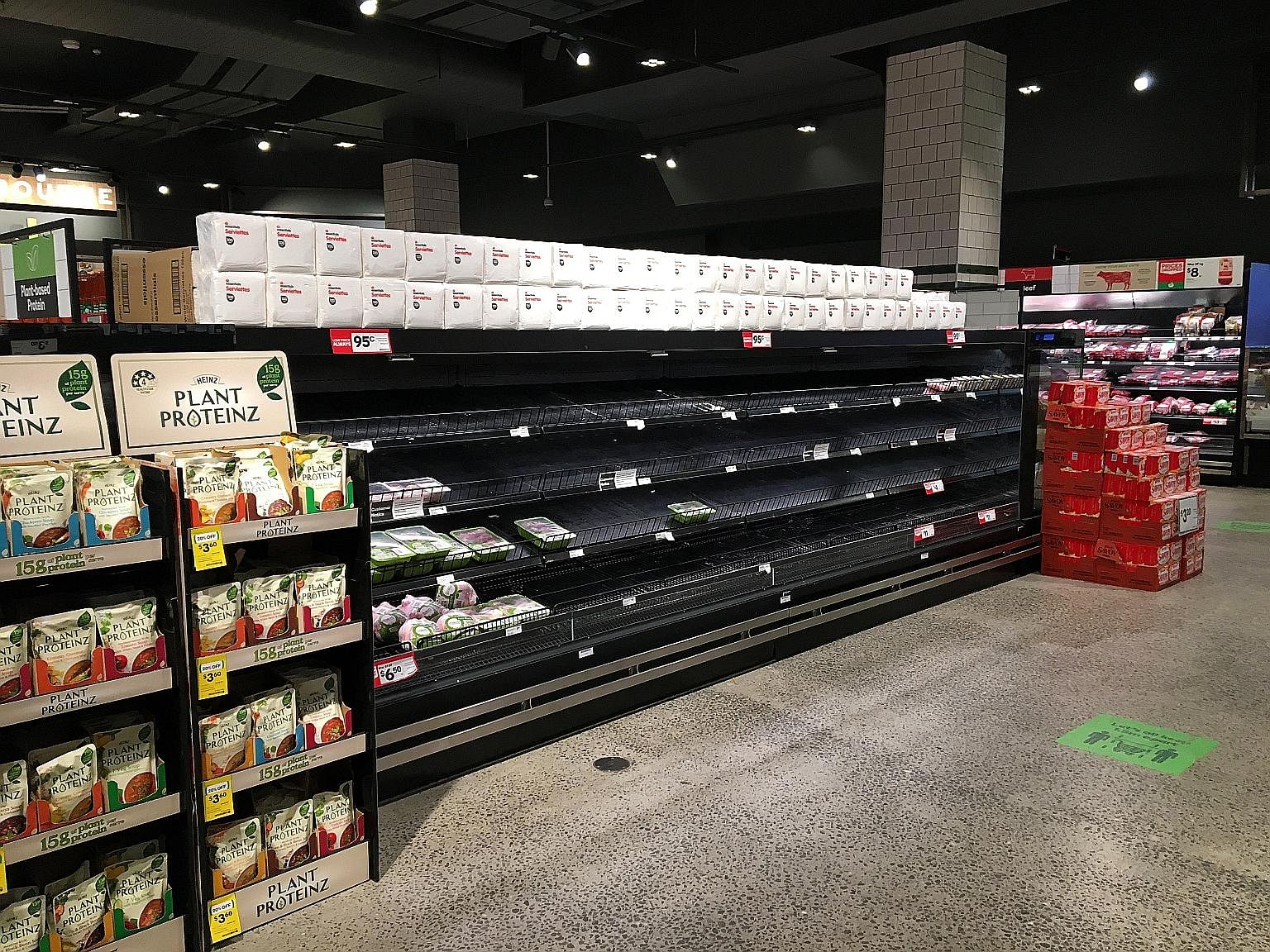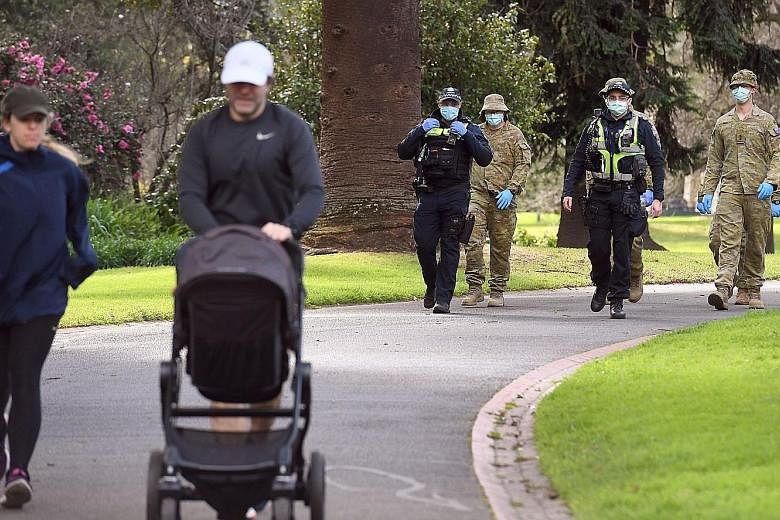The Australian state of Victoria reported record numbers of Covid-19 cases and deaths yesterday as the authorities tightened restrictions and other states imposed tougher border controls.
Four weeks after introducing a lockdown to combat a second wave, Victoria's Premier Daniel Andrews announced yesterday that a record 725 new cases and 15 deaths had been reported.
During the first wave in March, the state's highest daily number of cases was 111.
The latest fatalities include a man in his 30s, the youngest person in Australia to die of the coronavirus. Twelve other deaths were linked to aged-care homes.
Mr Andrews described the current outbreak as "a bigger challenge than perhaps we have ever faced".
"If we all continue to do as we should, making better choices, then we'll keep our community safe and we will get to the other side of this," he said.
On Sunday, he announced tougher rules for Melbourne, the country's second-biggest city, for the next six weeks.
A curfew is in effect from 8pm to 5am, and all but essential shops must close from today.
The city's five million residents are allowed to go outside only alone and must stay within 5km of their homes.

Defence force personnel have been deployed to work with the police and health authorities to enforce the measures.
Mr Andrews said yesterday that childcare centres will shut from today and elective surgery will be banned across the state to ease the demand on medical services.
Other states have begun imposing tougher border controls after experiencing fresh cases of Covid-19.
The most populous state, New South Wales (NSW), yesterday recorded 12 new cases, mainly related to clusters that originated with people coming from Victoria.
NSW Premier Gladys Berejiklian announced yesterday that anyone crossing from Victoria would have to undergo a 14-day hotel quarantine at their own expense.
From tomorrow, land borders will be closed and travellers must fly into NSW through Sydney airport.
"We are not an island, we are a state within a nation with geographic proximity to, unfortunately, other states," Ms Berejiklian said. "We love our Victorian fellow citizens, but their rates of infection are incredibly high at the moment and not going down."
The state of Queensland also said it will close its border to anyone coming from NSW and the Australian Capital Territory from Saturday. Access from Victoria has already been banned.
Queensland, which is a popular destination for interstate tourists from NSW and Victoria, recorded one new case yesterday.
Its premier, Ms Annastacia Palaszczuk, said the latest move would affect the economy and was "going to be tough".
"But your health comes first," she said. "We have seen that Victoria is not getting better, and we're not going to wait for New South Wales to get worse."
Victoria's second wave is believed to have been sparked by infections of security guards at quarantine hotels in Melbourne.
This led to large clusters linked to families, schools and workplaces, before the virus eventually began its rampant spread across the community.
Victoria's government believes that casual workers contributed to the spread by turning up for work despite being infected. Casual workers are often less well-paid and do not receive sick leave.
Another factor is the inadequacy of Australia's aged-care system, with many homes underfunded and lacking adequate supplies and trained staff. Several homes have experienced clusters of infections, leading to large numbers of deaths.
But another reason for the failure of the recent lockdown is that many people flouted social distancing rules, perhaps due to complacency following the success of the first lockdown in March.
However, the surging numbers may have led to a new obedience.
On Tuesday, Mr Andrews tweeted images of Melbourne's once busiest - but now empty - streets. "Thank you," he wrote.











